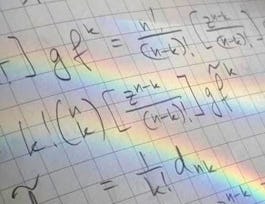This course is the first of a series that is designed for beginners who want to learn how to apply basic data science concepts to real-world problems. You might be a student who is considering pursuing a career in data science and wanting to learn more, or you might be a business professional who wants to apply some data science principles to your work. Or, you might simply be a curious, lifelong learner intrigued by the powerful tools that data science and math provides. Regardless of your motivation, we’ll provide you with the support and information you need to get started.


Introduction to Linear Algebra and Python
This course is part of Linear Algebra for Data Science Using Python Specialization
Taught in English
Some content may not be translated


Instructors: Dennis Davenport
3,489 already enrolled
Included with 
Course
(11 reviews)
Details to know

Add to your LinkedIn profile
10 quizzes
Course
(11 reviews)
See how employees at top companies are mastering in-demand skills

Build your subject-matter expertise
- Learn new concepts from industry experts
- Gain a foundational understanding of a subject or tool
- Develop job-relevant skills with hands-on projects
- Earn a shareable career certificate


Earn a career certificate
Add this credential to your LinkedIn profile, resume, or CV
Share it on social media and in your performance review

There are 4 modules in this course
In module 1, you'll learn how to explain fundamental concepts of linear algebra and how to use Python, one of the most powerful programming languages, to model different data. We will cover the following learning objectives.
What's included
15 videos6 readings3 quizzes2 discussion prompts
Let's recap! In module 1, you performed software installation, learned some best practices, and learned how graphs are used to model data in Python. In module 2, you'll gain the knowledge you need to use linear algebra to solve data science problems. You'll also perform matrix algebra on large data sets using Python. We will cover the following learning objectives.
What's included
7 videos1 reading3 quizzes1 discussion prompt
Let's recap! In module 2, you learned how to use linear algebra to solve data science problems. Using Python, you also learned how to perform matrix algebra on large data sets. In module 3, you will learn how to define vector equations and use vector equations to model data. We will cover the following learning objectives.
What's included
7 videos3 quizzes1 discussion prompt
Welcome to the final module of this course! Over the past 3 modules, you have been introduced to and gained knowledge on the following topics:- Version control - Git Bash, Jupyter Notebook via Anaconda, NumPy and SymPy, and other software tools, Modeling data, Matrix algebra and, Vector equations. In the final module of the course, you'll apply what you've learned to concrete, real-world examples. You'll practice using vector equations to study data sets and provide peer reviews. We will cover the following learning objectives.
What's included
4 videos1 reading1 quiz1 peer review
Offered by
Recommended if you're interested in Software Development

Howard University

Howard University

Howard University

Howard University
Why people choose Coursera for their career




New to Software Development? Start here.

Open new doors with Coursera Plus
Unlimited access to 7,000+ world-class courses, hands-on projects, and job-ready certificate programs - all included in your subscription
Advance your career with an online degree
Earn a degree from world-class universities - 100% online
Join over 3,400 global companies that choose Coursera for Business
Upskill your employees to excel in the digital economy
Frequently asked questions
Access to lectures and assignments depends on your type of enrollment. If you take a course in audit mode, you will be able to see most course materials for free. To access graded assignments and to earn a Certificate, you will need to purchase the Certificate experience, during or after your audit. If you don't see the audit option:
The course may not offer an audit option. You can try a Free Trial instead, or apply for Financial Aid.
The course may offer 'Full Course, No Certificate' instead. This option lets you see all course materials, submit required assessments, and get a final grade. This also means that you will not be able to purchase a Certificate experience.
When you enroll in the course, you get access to all of the courses in the Specialization, and you earn a certificate when you complete the work. Your electronic Certificate will be added to your Accomplishments page - from there, you can print your Certificate or add it to your LinkedIn profile. If you only want to read and view the course content, you can audit the course for free.
If you subscribed, you get a 7-day free trial during which you can cancel at no penalty. After that, we don’t give refunds, but you can cancel your subscription at any time. See our full refund policy.

